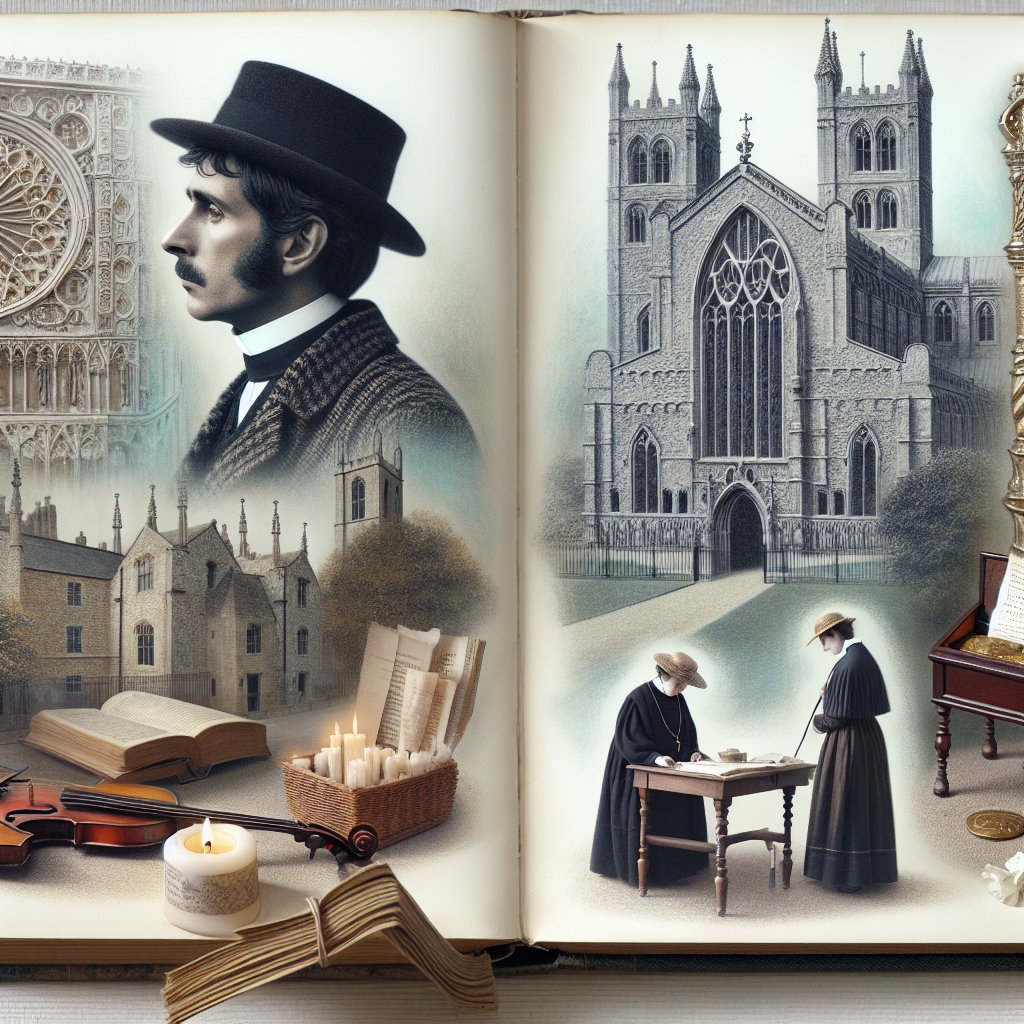Discover the Timeless Intrigue of ‘The Warden’ by Anthony Trollope: A Classic Tale of Morality and Power
Introduction
Anthony Trollope’s The Warden, published in 1855, introduces readers to the charming and complex world of Barchester, a fictional cathedral town in Victorian England. As the first book in the Chronicles of Barsetshire series, The Warden lays the foundation for a rich tapestry of provincial life, exploring themes of morality, power, and reform. Trollope, a master of social commentary and character-driven narratives, uses his literary talents to offer insights into the Victorian society’s moral and social dilemmas. As such, the novel holds a significant place in Trollope’s oeuvre and the broader landscape of English literature, influencing future literary works and adaptations.
Themes
At the heart of The Warden lie themes of morality, power, and reform, intricately woven into the fabric of Victorian society. The novel addresses the ethical conflicts that arise when personal interests intersect with duty and public perception. Trollope questions the moral implications of clerical wealth and privilege, particularly through the central figure, Reverend Septimus Harding, the titular warden of Hiram’s Hospital.
Harding’s moral struggle forms the crux of the narrative. As he weighs his comfortable life against the ethical accusations leveled against him, the novel delves into the Victorian preoccupation with religious and moral duty. Conversely, Trollope offers a critique of power dynamics, portraying how individuals such as John Bold, a zealous reformer, navigate the complexities of influencing social change. Bold’s efforts underscore the tension between progressive ideals and the entrenched power structures of the church and society.
Character Development
Trollope excels in creating rich, multidimensional characters whose development mirrors the thematic explorations of the novel. Reverend Harding emerges as a character marked by integrity, humility, and a deep internal conflict. His journey from a contented clergyman to a man tormented by moral doubt is depicted with subtlety and empathy. Harding’s genteel nature and sincere concern for the hospital’s bedesmen make his dilemma profoundly human, inviting readers to empathize with his plight.
Similarly, John Bold epitomizes youthful idealism and the zeal for social justice. His character is significant in exploring the moral gray areas within reform movements and the unintended consequences of disruptive actions. Bold’s romantic entanglement with Eleanor Harding, the warden’s daughter, adds a personal dimension to his crusade, highlighting the intersection of personal and public spheres.
Archdeacon Grantly, Harding’s son-in-law, represents the status quo, and his character serves as a foil to Bold’s reformist zeal. Grantly’s fierce defense of clerical wealth and authority encapsulates the institutional resistance to change, illustrating the broader societal reluctance to embrace reform.
Narrative Techniques
Trollope’s narrative technique in The Warden is marked by a distinctive use of irony and gentle satire. His omniscient narrative voice maintains a balance between empathy and critique, providing insight into the motivations and contradictions of each character. This nuanced approach allows Trollope to explore his themes with a light touch, avoiding heavy-handed moralizing while provoking thoughtful reflection.
The novel is structured around a series of moral and legal challenges, illustrated vividly through meticulous attention to dialogue and setting. In Chapter XV, “Tom Towers, Dr. Anticant, and Mr. Sentiment,” Trollope employs irony to critique the sensationalist media and intellectual debates of the time. The portrayal of Tom Towers, a powerful columnist, reflects the growing influence of journalism and public opinion, highlighting its role in shaping societal change.
Cultural, Social, and Historical Contexts
The Warden is a product of its time, deeply embedded within the cultural and social currents of Victorian England. The novel reflects contemporary debates over church reform and the reallocation of church resources—a hot-button issue sparked by the growing movement towards modernization and reform. Trollope’s portrayal of the legal and ethical challenges faced by the clergy resonates with the historical context of ecclesiastical reforms such as the Ecclesiastical Dilapidations Act of 1871.
Additionally, the novel mirrors the broader social and cultural tensions between tradition and change, encapsulating the dynamic interplay between progress and conservatism. Trollope’s exploration of personal integrity against institutional pressure resonates with the Victorian anxieties about maintaining moral rectitude in a rapidly changing world.
Legacy and Lasting Influence
The Warden has left an indelible mark on English literature and continues to be praised for its insightful exploration of human and societal dilemmas. Trollope’s nuanced depiction of character and morality influenced later writers, who admired his ability to blend social critique with humane storytelling. His work paved the way for the realist novel and contributed to the tradition of social commentary that defines much of English literature.
The novel’s legacy extends beyond literature, inspiring adaptations in film, television, and radio. These adaptations underscore the timelessness of its themes, reflecting ongoing societal dialogues about ethics, power, and reform.
Reflective Questions and Takeaways
As we reflect on The Warden, we are invited to consider its relevance today. In an era where institutional integrity and ethical leadership remain pressing issues, Trollope’s exploration of personal morality versus systemic pressures feels especially pertinent. The novel invites readers to ponder complex questions: How do we balance personal ethics with professional duties? What role should media play in shaping public discourse? Can reform and tradition coexist without conflict?
The Warden encourages us to acknowledge the gray areas in moral decision-making and the subtle interplay of personal motives and social justice. As we navigate our own societal challenges, Trollope’s work remains a valuable lens through which to examine the enduring struggle between conscience, duty, and change.
Got more questions? Our personalized Book Explorer AI assistant is here to help. Click here to start a conversation!
[Advertisement]
Looking to find deeper meaning in the books you love? Discover how ANY book relates to positive biblical principles with Books and Scripture GPT‘ from BGodInspired.com. Click here to explore the connections that might surprise you!
[Advertisement]

